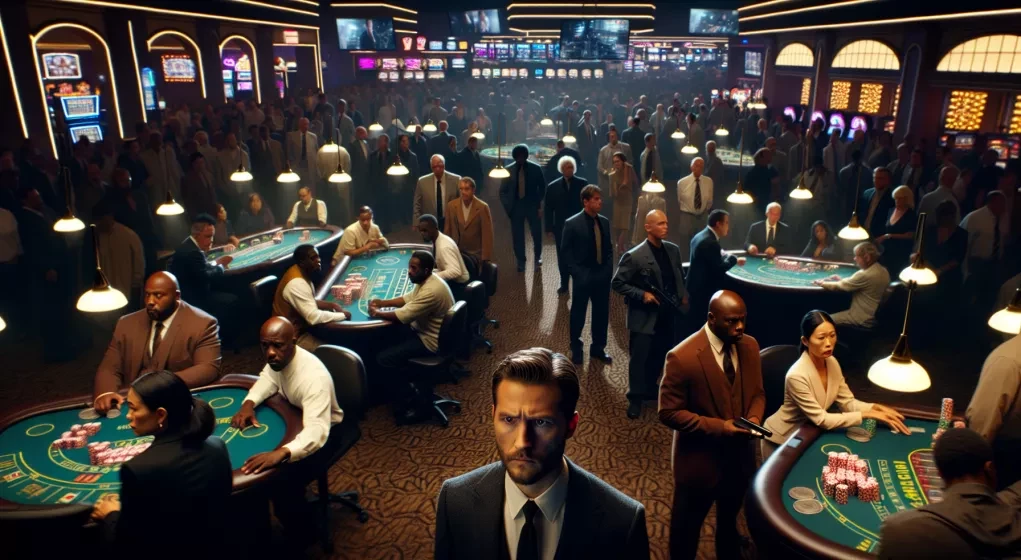In the labyrinth of high-stakes gambling, a lone figure has cast a shadow over the felted tables of the Mohegan casino nestled in the cityscape of Wilkes-Barre, Pennsylvania. The man in the spotlight, Jianchu Liu, now finds himself the quarry in a determined manhunt following a bold attempt to tip the odds in the ancient game of baccarat, a pursuit where fortune favors the meticulous, and the eagle-eyed.
Liu, a chiselled veteran of the cards, edged by the allure of the perfect gamble, allegedly orchestrated a ruse as old as the game itself, yet infused with the clandestine aid of modern technology: a camera app. Under the hushed overhead glow of the casino’s vigilant cameras, Liu’s gambit was to clandestinely record the sequence of the shuffled decks, a strategy foiled by the very surveillance he sought to evade.
Known to the casino echelons by his rewards card, the revelation of Liu’s identity peeled back the layers of an enigma, exposing ties to a cadre of professional cardsharpers. This ring of illusionists, known to have danced with fortune at such storied institutions as the Golden Nugget and Imperial Palace in Biloxi, Mississippi, have long flirted with the clandestine arts of deception.
Their modus operandi whispers of a sleight so discreet that a card’s brief splay by a deftly inserted cut card suffices—a flicker in time captured by an unseen lens. The ensuing image—a trove of invaluable foresight—is then believed to be quietly conveyed to an accomplice. This strategist, shrouded in the anonymity of the crowd, would then signal the prime moments of play to Lui, his guidance but an inaudible whisper delivered through the subterfuge of a concealed earpiece.
The essence of baccarat—a dance of chance with the highest value hand embracing victory often finds the player holding the shoe and dealing cards under the strict choreography of the dealer. It was within these orchestrated movements that Liu sought to paint his masterpiece. Yet, his machinations, described by law enforcement as unpolished, only served to draw the suspicious gazes of the security’s ever-watchful eyes.
Thus began the unraveling of an intricate plot, as vigilant troopers, tipped by wary casino staff regarding Liu’s unorthodox handling of the deck, delved deep into the surveillance archives. They unearthed footage at the auspicious time of 1:35 a.m. on a late February night, where Liu, beneath the distraction of a dimmed cellphone screen and obscured by a fortress of scorecards, angled for his moment of subterfuge.
Once the dealer had imparted the sacred shuffle and granted Liu the ceremonial cut, it was then that this modern-day cardsharp attempted to guide the dealer’s hands, a venture that not only sparked a verbal tussle but also caught the probing eye of the casino’s guardians.
A day later, under the twilight cloak of 6:50 p.m., Liu once more deployed his device beneath the guise of unsuspecting scorecards. Amidst his determined fanning and rotating of the deck—a forceful choreography intended to glimpse the cards’ ordained order—the eagle-eyed observers pieced together the remnants of Liu’s stratagem.
The culmination of this drama has left a warrant brandishing Liu’s name, a parchment inscribed with two misdemeanor pledges of deceitful victory, as the statesmen of law and order cast their net wide, in pursuit of the baccarat cheat who sought to sway fortune’s immutable hand.






